News/Blog
Why the SWRC is leaving X and where you can find us

At the SWRC we have historically used X (formerly known as Twitter), Facebook and LinkedIn to keep survivors updated about our services and resources, and to keep the legal and wider GBV community informed about training and development opportunities. But today we’re announcing that, as of December, we will no longer be using X.
“Today has given survivors back their voice’: Campaigners celebrate removal of not proven verdict
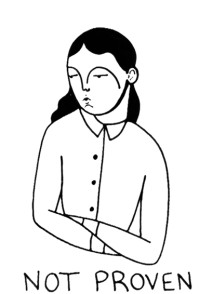
By Rape Crisis Scotland
On September 17th 2025, the Scottish Parliament voted through the landmark Victims, Witnesses and Justice Reform Bill, which includes the removal of the not proven verdict.
Our work on Anti-SLAPPs in Scotland
![]()
By Annamaria De Felice & Laura Nairn
Yesterday the Scottish Women’s Rights Centre (SWRC) took part in a roundtable discussion at the Scottish Parliament, organised by Index on Censorship, to help shape the future of anti-SLAPP protections in Scotland.
Celebrating a decade of the SWRC
On Tuesday 15th April, the SWRC celebrated our tenth anniversary with a special event at the University of Strathclyde, marking a decade of work supporting women survivors of gender-based violence in Scotland to access justice.

Celebrating International Women’s Day with student volunteers from the University of Strathclyde Law Clinic
To celebrate this year’s International Women’s Day event, the Scottish Women’s Rights Centre (SWRC)’s legal team attended an online session organised by the University of Strathclyde Law Clinic to explore the role of SWRC in helping survivors navigate the complexities of the legal system, emerging trends in legal challenges faced by service users, and a recent case outcome that underscores the importance of the SWRC’s work.
Blog by Annamaria De Felice
![]()
Why we need a legal aid reform. Victims/survivors of abuse should not have to pay for their own protection
The SWRC is calling for a simpler, fairer process to qualify for legal aid, ensuring that those who need protection can access essential support, without facing prohibitive costs.
Blog by Annamaria De Felice.
![]()
Landmark judgment on corroboration in sexual offence cases
This entry is taken from Rape Crisis Scotland’s News post here.
A judgement from nine senior judges has been issued today which transforms the approach to corroboration in sexual offence cases in Scotland.

Divorce and dissolution for survivors of domestic abuse in Scotland
Ending a relationship can be a difficult step. When the relationship has been abusive, you may be concerned about your safety and have additional worries and issues to deal with. You don’t need to cope with this alone - you can access support from a range of specialist organisations and, depending on your circumstances, legal options should be available to you.
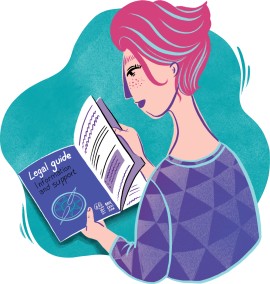
Celebrating International Women’s Day 2024
This week we celebrated International Women’s Day 2024 by hosting our #InvestHER event in partnership with JustRight Scotland and the Strathclyde Law Clinic for the students at the University of Strathclyde, members of the third sector and professionals from the legal community. ![]()
A tribute to our former colleague Karen Kirk
![]()
We are deeply saddened by the news that our former colleague Karen Kirk has passed away.
Karen worked closely with the JustRight Scotland (JRS) and Scottish Women’s Rights Centre (SWRC) team in a consultancy role during the COVID-19 pandemic and beyond.
Economic abuse and the law: what you need to know
This blog will explore what is meant by economic abuse and how it can affect those who experience it. It may therefore be difficult for some survivors to read. Please take care whilst reading and see the bottom of this blog for further support. 
Voyeurism and upskirting: what are they and what are your rights?
Whether you have heard about voyeurism and upskirting in the media or from friends, or have experienced it yourself, it can be useful to know what it involves and what the law says about it in Scotland. That’s why we have launched a new guide exploring voyeurism and upskirting in more detail, and outlining your options if it happens to you. 
This short blog provides a brief overview of the guide’s contents. We recommend you access the full guide for further detail.
SWRC and JustRight Scotland meet with Victims and Community Safety Minister
Staff members at JustRight Scotland and the Scottish Women’s Rights Centre welcomed Siobhian Brown, Minister for Victims and Community Safety, on Wednesday 19th July.

Pro-Bono Solicitor Network: Launching Tuesday 27th June 2023

Q&A with Rebecca Coltart
From Tuesday 27th June we will have a new Helpline open and operated by a network of Pro-Bono Solicitors. As we launch the helpline, we’ve spoken with Rebecca Coltart, one of the solicitors that has signed up to be involved. Below, she shares why she joined and what she feels are the critical issues in the civil legal system today, for both solicitors and survivors of gender-based violence.
You can find more information about our Pro-Bono Solicitor Network on our website.
Guest Blog by Researchers for "Domestic Abuse and Child Contact: The Interface Between Criminal and Civil Proceedings"

In this blog, Michele Burman, Ruth Friskney, Jane Mair and Richard Whitecross discuss their research on the operation of family law in child contact cases where there is a background of domestic abuse.
A statement from Scottish civil society organisations on the UK Government’s intervention on the Gender Recognition Reform (Scotland) Bill
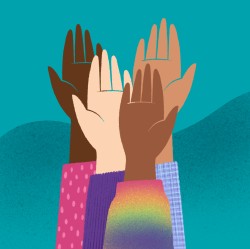
This week, the UK government announced their intention to block the Gender Recognition Reform (Scotland) Bill, which was
recently passed overwhelmingly in the Scottish Parliament, from becoming law. We, the undersigned, wish to make clear our strong opposition to this intervention and to any suggestion that these reforms would have an adverse effect on the Equality Act or women’s rights.
Festive Season Closures and Safety Planning

In the period between Christmas and New Year, many offices and services may be closed or open with reduced services.
Scottish Women’s Rights Centre Closure
Scottish Women’s Rights Centre will also be closing for the festive season and below we include details of our closing dates, as well as information on services that will still be available to you during this time if you need them. Whatever circumstances you have gone through, we want to reassure you that there are support services you can contact during this time.
The Scottish Women's Rights Centre launches its brand-new website

We are delighted to introduce our brand-new website to our service users, funders and partner organisations! This has been in the making for a while now and shaped by survivors, for survivors.
This modernisation in the design, content and mapping of the new website has been introduced to improve access to SWRC services, providing updated information about the SWRC Helpline, Legal and Advocacy Services. The website will also make it easier for survivors and professionals to access legal guides, information on support services, training and our Solicitor Signposting Network.
Thank you to Kairos Women+ for consulting with us on the development of the website, to Fuzzylime for its development and to Rosa for funding this project.
Embedding Learning: How the RISE@SWRC Project opened further opportunities for development of a needs-based approach to services
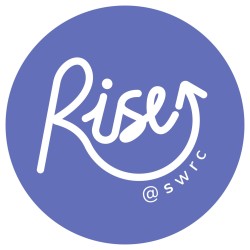
A large focus of our work is making legal information and support accessible to survivors of gender-based violence – many of whom experience numerous barriers in finding suitable support and pursuing justice. As part of the 16 Days of Activism Against Gender-Based Violence this year, we wanted to take the opportunity to reflect on learning from the Scottish Government funded RISE@SWRC pilot project which ran between July 2021 – March 2022.
Brexit - Your Rights
![]()
We have produced informational videos to help you navigate your rights in relation to Brexit. You can find these on our YouTube channel in a variety of languages.
For a more in-depth look at these processes, you can view our flow chart-style Factsheet.
Factsheet: Forced Marriage
What is Forced Marriage?
![]()
A forced marriage is a marriage in which one or both people do not freely agree (consent) to the marriage and where some form of pressure (coercion) is involved.
This pressure can take many forms and can be physical, emotional, psychological and financial. It can include deception, threats, blackmail or harassment.
There is often huge pressure to conform to the wishes of family and community. The pressure which forces a person into marriage does not have to be directed against that person and can include circumstances in which threats are made to the person or others if they do not agree to the marriage.
A forced marriage can also occur where an individual is not able to freely agree on their own behalf, for example, children or adults with a mental disorder.
A forced marriage is not the same as an arranged marriage. In an arranged marriage, both parties consent to the marriage.
SWRC Statement on the Response to Scottish Government's Consultation on Proposed Abortion Services Safe Access Zones (Scotland) Bill
![]()
The Scottish Women’s Rights Centre offers legal and advocacy services to women survivors of gender-based violence (GBV), including sexual violence, physical abuse, coercive control and economic abuse.
We know that barriers to accessing healthcare facilities could have a detrimental and disproportionate impact on survivors of GBV placing them at an even greater disadvantage.
Defamation: What is it and what do I need to know?
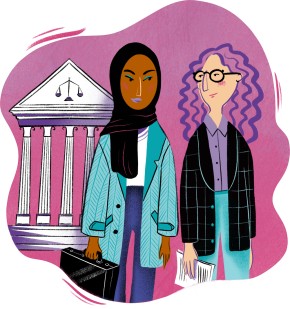
As a survivor of gender-based violence, it is useful to know about defamation. Defamation can be a complex area of law, so this short blog gives some initial helpful information on the topic.
The Forensic Medical Services Act: What you need to know

In 2021, The Forensic Medical Services (Victims of Sexual Offences) (Scotland) Act passed into law. This legislation means health boards can now provide Forensic Medical Examinations (FME) after a self-referral, without victims/survivors needing to report to police first.
Know your rights: the criminal justice process

As a survivor of gender-based violence, engaging with the criminal justice process as a witness after a perpetrator is charged can be a daunting and stressful prospect. Please know that the SWRC are here to support you. We can help explain the process so that you know what to expect. We can also make you aware of your rights and provide information about a range of support services that may be available to provide emotional and practical support to you.
SWRC statement on solicitor boycott of s1 Domestic Abuse (Scotland) Act 2018 cases
-270.png)
The Scottish Women’s Rights Centre (SWRC) is a unique collaborative project that provides free legal information, advice and representation to women affected by violence and abuse.
We are aware of the decision by the Scottish Solicitor’s Bar Association to decline instructions in summary cases involving charges brought under S1 of the Domestic Abuse (Scotland) Act 2018 where the accused seeks legal aid.
Rape culture in education: what is it and how can we end it?
![]()
Gender-based violence and sexual misconduct on university and college campuses in the UK is described as an epidemic. Gender-based violence is a symptom and a cause of gender inequality in our society, so a culture shift is required to prevent it.
Sexual misconduct on campus: what are your rights?
![]()
Universities and colleges have the power to discipline students or members of staff who sexually harass students. If you have reported sexual harassment to your college or university, there are a range of protective measures they can put in place to protect you while the matter is being investigated.
FollowItApp: Support with stalking
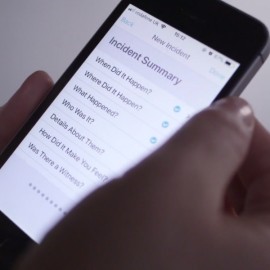
If you are experiencing or have experienced stalking, the Scottish Women’s Rights Centre (SWRC) is here to support you. We understand that stalking can have a significant and detrimental impact upon your life and wellbeing.
Help shape our new website
![]()
We know that for many people the Scottish Women's Rights Centre (SWRC) website is often the first place to look for legal information in relation to gender based violence.
We want to make sure that it’s as helpful as possible, and that people can get access as quickly as possible to whatever they’re looking for.
Spiking by injection: what are your rights?
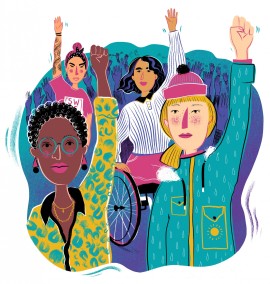
Spiking occurs when someone puts drugs or alcohol into another person’s drink (or otherwise into another person’s body) without their knowledge and/ or consent. Spiking someone makes them more vulnerable to other misconduct, such as sexual harassment, sexual assault, and rape.
Doxing: what is it and what are your rights?
-1575998935-270.png)
The sharing of someone else’s private information on the internet without their consent is known as ‘doxing’ and can have very dangerous consequences. It is a form of online harassment and there are legal options available to people who have been ‘doxed.’
Fake Images, Real Crime: support for dealing with deepfakes
![]()
The sharing of intimate images or videos (or threats to share them) without consent is a form of online sexual harassment. This is a criminal offence, whether the images are real or digitally altered. This means that the criminal offence can apply to images and videos manipulated using technology, such as photoshop or Artificial Intelligence (AI) used to create ‘deepfakes’.
Raising a claim for sexual harassment in an employment tribunal: time limits

If you experience sexual harassment at work, you may want to make a claim in an employment tribunal. To do so, you need to make the claim within three months (minus one day) of the incident. In this blog, we outline the options available if you experience sexual harassment at work, and why we think the three-month time limit should be extended.
RISE blog: Universal Credit and how to claim it

During the pandemic, restrictions meant many people were unable to work as normal. Measures such as the government's furlough payments scheme and temporary increases to Universal Credit payments were put in place. However, with the easing of restrictions, those measures are now coming to an end.
If you’re worried that your income is too low and you cannot afford things like rent, fuel bills and food, you may still be entitled to Universal Credit payments. The purpose of these payments is to ensure that everyone has enough income to meet their essential expenses.
Non-disclosure agreements (NDAs) in sexual harassment cases
-290.png)
Recently there has been lots of discussion about women who have experienced sexual harassment at work being asked to sign a non-disclosure agreement (NDA) as part of a settlement agreement, preventing them from speaking out about their experiences.
NDAs may be appropriate in some circumstances, for example to protect a business’ trade secrets. However, they should not be used to stop someone from reporting sexual harassment or any form of discrimination.
Flashing and cyber-flashing – what to do and where to get support
-290.png)
Flashing and cyber-flashing are forms of sexual harassment. Flashing can happen in different ways: for example, someone showing you their genitals in the street without your consent.
Cyber-flashing, on the other hand, is where an individual sends an unsolicited sexual image (including a moving image, such as a GIF or video) through a digital device.
Sexual harassment from customers, clients, or service users: what are your options?
-290.png)
Third party harassment is a form of harassment (related to a protected characteristic) carried out by someone you encounter at work but who does not work for your employer - for example a customer, client or service user.
A hotel guest asking a member of staff sexual questions. A service user touching a carer inappropriately. A client sending inappropriate sexual texts to a therapist. These are all examples of sexual harassment from a third party.
RISE blog: Supporting Tamara
![]()
‘Tamara’ is an EU citizen living in Scotland. She was involved in selling and exchanging sex. Tamara attended a legal surgery with solicitors at JustRight Scotland who now also offer legal advice through RISE@SWRC.
She got advice and assistance to apply to the EU Settlement Scheme. Tamara met with Kirsty who explained the process to her and supported her to make the application herself. Tamara’s application was successful and she now has settled status in the UK.
A new way of supporting you through our helpline
![]()
We are temporarily introducing a new way of supporting women impacted by abuse and violence through our helpline.
The pandemic has been a very challenging time for women in Scotland. And we have certainly noticed this in the huge demand that our small team of solicitors and advocacy workers have seen over the past months. After an incredibly busy year, we’ve been reflecting on ways in which we can offer our legal support more effectively and meet some of this increased demand.
Advocacy support for women selling/ exchanging sex in Scotland
-290.png)
Abuse affects every aspect of a woman’s life. And we know that women can face huge barriers to get the justice and support they need and deserve in the aftermath of the abuse. Some of these barriers are a result of the stigma, discrimination and criminalisation that women have historically experienced.
This summer we launched RISE@SWRC, a service that assists women who sell/ exchange sex to use their rights and make their voices heard after an experience of abuse. Advocacy Support is a key part of this service.
Getting legal advice from our specialist sexual harassment solicitor
![]()
Every survivor will experience sexual harassment differently. And because of this, knowing what your rights are and finding out the legal steps you can take to protect yourself can feel daunting.
At the Scottish Women’s Rights Centre, we have a sexual harassment legal service specifically to support women in this situation. Our service is a safe and confidential space to speak to our specialist sexual harassment solicitor about the incidents you’ve experienced and find out how to use your rights.
New project to offer legal and advocacy support for women who sell or exchange sex affected by abuse or violence
-1572344833-270.png)
The Scottish Women’s Rights Centre (SWRC) has announced today the launch of ‘RISE @ SWRC’, a short pilot project which offers judgement-free legal and advocacy support for women who sell or exchange sex in Scotland who have been impacted by any form of abuse or violence.
RISE @ SWRC —which stands for Rights, Information, Support and Engagement— will provide women with information about their rights as well as free and confidential legal and advocacy advice, and representation in civil justice processes.
CICA ‘Same Roof Rule’ claims – deadline approaching
![]()
If you experienced sexual abuse before 1 October 1979 you can now either apply or re-apply for Criminal Injuries Compensation (CICA).
You are eligible to apply if:
- The abuse happened before 1 October 1979
and
- You lived with the abuser as a family member.
Reporting stalking to the police – how to make the process more supportive
![]()
Ten years ago, the law in Scotland recognised stalking as a crime for the first time, making it clear that stalkers can face legal consequences for their actions. What’s more, the legislation acknowledged that this type of abuse occurs over the course of two or more incidents and its purpose is to make the victim feel frightened, intimidated and isolated.
Since the law came into force in 2010, we’ve seen some positive efforts to tackle stalking in Scotland; for instance, there is growing awareness of this form of abuse and specialist victim support services have prioritised work on responding to survivors of stalking. At the same time, stalking continues to be an underreported crime.
10 facts about Female Genital Mutilation (FGM) in Scotland
*We are grateful to The Women’s Support Project for their contribution to this blog
![]()
In the last decade there has been wider recognition of the impact that female genital mutilation (also known as FGM, ‘initiation’, ‘circumcision’, ‘rites of passage’, or ‘cutting’, among other names) can have on girls and women, and how common it is.
But what do we know about FGM in Scotland? In this blog we explore some facts about FGM, key aspects of the law, and the work needed to tackle this form of abuse.
We are adjusting our legal helpline to support more women living with abuse
![]()
From January 2021, we are increasing the capacity of our helpline so more women can contact us for legal advice and information. To do this, we are making some adjustments.
Our Thursday helpline will now become available to women living with any form of abuse or violence (including sexual harassment). This means we will no longer offer a specific sexual harassment helpline.
Instead, women affected by sexual harassment will be able to call our helpline during any of its opening times.
In the fight for gender equality, the rights of migrant women cannot be an afterthought
![]()
The pandemic has exposed the harsh reality for migrant women in the UK and the rights they’ve been losing for years. From the prospect of becoming undocumented after Brexit and the unlawful evictions asylum-seekers are facing to the cruelty of ‘No Recourse to Public Funds’ (NRPF), an immigration condition that essentially forces some women to choose between destitution and staying with the abuser. When you add gender-based violence to this experience, the hostility seems almost insurmountable.
New survey: experiences of reporting stalking to the police
![]()
As part of our work to improve women’s experiences of the justice system, we have published a survey to hear from women who have reported stalking to the police in Scotland and their journey through the criminal justice process.
Stalking is a common form of abuse for women in Scotland, particularly for those living with domestic abuse. Since the Covid-19 pandemic started, there has also been a significant increase in stalking incidents, and we anticipate that this might lead more women to consider reporting the situation to the Police.
How the pandemic is increasing the risk of economic abuse
![]()
The economic fallout of this pandemic is undoubtedly hitting women the hardest, with increased unpaid caring and domestic responsibilities, the prospect of losing already precarious and low-paying work, and the hurdles that exist when accessing social security. A hidden consequence of these inequalities is a higher risk of experiencing economic abuse and a worse experience for those already living with it.
Olive Morris and her fight for gender, racial and housing equality
![]()
Although often overlooked, Black women and women of colour have been at the centre of the fight for women’s rights, equality and social justice in the UK. This Black History Month we want to pay tribute to an outstanding Black activist who, despite her short life, she left a long-lasting legacy of activism that continues to empower the people at the margins of our society.
Domestic abuse and support in the workplace – what needs to change?
![]()
Support in the workplace is critical for women experiencing domestic abuse, and for some it can be a lifeline. This is especially pertinent at the moment when the COVID-19 pandemic means most employees are now working from home. For those living with abusive partners, they might now find themselves trapped with their abuser for significant periods of time and may find it more difficult to reach out for advice and support.
Perspective matters when it comes to securing social justice: the Scottish Feminist Judgments Project
by Sharon Cowan, Chloë Kennedy and Vanessa Munro
![]()
What is the Scottish Feminist Judgments Project (SFJP)? The SFJP is a collaborative legal project involving over 40 contributors: university academics, lawyers, judges, activists and artists. The project examines sixteen important legal cases in Scotland, and rewrites the judges’ decisions as if the judge had been a feminist, using only the resources that would have been available to the judge at the time of the original case.
Child Welfare Reports: what are they and why do they matter in domestic abuse cases?
![]()
Over the past four years, Richard Whitecross, a legal researcher at Edinburgh Napier University, has been doing research on how the courts handle child contact cases in which there has been domestic abuse. He has interviewed lawyers, sheriffs and many women with children.
One of the key concerns raised with him by mothers with experience of domestic abuse is about the Child Welfare Report prepared for the court. With support from the Royal Society of Edinburgh, he is beginning a new project to look at Child Welfare Reports and how they report, or not, domestic abuse.
Shedding light on the challenges faced by BAME women in Scotland
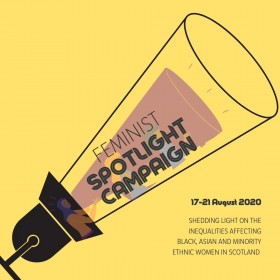
As part of a feminist leadership group based in Scotland, we have published a series of blogs from BAME women in Scotland, highlighting the challenges and inequalities many Black and ethnic minority women are facing.
The blogs are written by members of the Feel Good Women’s Group in Govanhill, the Ubuntu Women Shelter, members of the Young Women’s Movement in Scotland and Zero Tolerance. They discuss a variety of issues including community activism, the impact of the policy of no recourse to public funds, personal experiences of racism and sexism and the links between anti-racism work and prevention of violence against women.
Me, I have a voice
-1595948508-300.png) In this blog we share the powerful account of a survivor who endured years of sexual harassment from her male work colleagues. Her testimony brings to light the many obstacles she faced to report the perpetrators and put an end to the abuse, as well as the emotional impact on her life and the journey to heal from this devastating experience.
In this blog we share the powerful account of a survivor who endured years of sexual harassment from her male work colleagues. Her testimony brings to light the many obstacles she faced to report the perpetrators and put an end to the abuse, as well as the emotional impact on her life and the journey to heal from this devastating experience.
Content warning: this story includes descriptions of physical and sexual harassment, suicidal thoughts, depression, and references to domestic abuse and sexual violence. You can find details of support services here and at the end of this blog post.
Domestic abuse and trauma informed practice: new CPD training video launched for solicitors in Scotland
-1572344833-270.png)
The Scottish Women’s Rights Centre (SWRC) has today launched a training video for solicitors, which discusses the benefits of a trauma-informed practice when working with those who have experienced domestic abuse. Funded by the Scottish Government, the free online video and CPD questions are now available on the Law Society of Scotland’s website.
‘I feel privileged to play a part in working toward ending violence against women’: meet Erin, our new Volunteer Coordinator
-1591193850-310.png)
We are very excited to introduce you to Erin, our new Volunteer Coordinator. Volunteers play a central part in assisting our solicitors in the helplines and with casework, and Erin’s role is crucial to keep our volunteers engaged and to offer them the best experience possible.
To celebrate Volunteer Week, we asked Erin to tell us more about herself and her experience volunteering for us.
Scottish Women’s Rights Centre comment on the acquittal in Alex Salmond’s sexual assault trial
-300.png)
Today we stand in solidarity with the nine women in Alex Salmond’s sexual assault trial as we find out the verdict is ‘not guilty’ for 12 of the 13 charges, and ‘not proven’ for one charge. Only a small percentage of rape and sexual assault cases in Scotland make it to court and it is important to highlight that the evidence in this case was significant enough to take it to this point.
An update on coronavirus/COVID-19 and our services
-265.png)
At the Scottish Women’s Rights Centre, the wellbeing of our service users, volunteers, staff and their families is paramount. This is why, to prevent the spread of coronavirus/COVID-19, we have made some adjustments to our services.
We know this can be a difficult time for women who are experiencing abuse, and we want to make sure they are still able to access our legal and advocacy services.
How can you use FollowItApp to record cyberstalking incidents?
-340.png) In the last decades the internet has become deeply embedded
in our lives. Although online spaces tend to be perceived as safe and
equal, the reality is that many forms of violence against women have been
transported to these spaces, and stalking is not the exception.
In the last decades the internet has become deeply embedded
in our lives. Although online spaces tend to be perceived as safe and
equal, the reality is that many forms of violence against women have been
transported to these spaces, and stalking is not the exception.
Increasingly we see stalkers use the internet to track, intimidate, harass and abuse women. This is known as cyberstalking. From unwanted social media messages and comments to getting your online accounts hacked, there are many ways in which you can be cyberstalked.
How are we normalising stalking?
-1575998935-290.png)
By Dr Katy Proctor
It is perhaps because stalking is a phenomenon commonly linked with celebrities that we don’t recognise it when it happens to those around us. There are plenty of examples of high profile individuals who have been stalked by delusional people pursuing an imagined relationship. Often these cases are also associated with violence, sexual assault and even murder.
Innovative app launched in Scotland to help women report stalking to the police
-1575891562-300.png)
The Scottish Women’s Rights Centre (SWRC) today launched FollowItApp, a mobile app designed to help women in Scotland record stalking incidents and assist them if they want to report this crime to the police.
The app was developed by SWRC in partnership with media co-op as a response to the challenges many women face in trying to demonstrate the pattern of behaviour they experience.
PRESS RELEASE: Legal service expanded to support survivors of gender based violence in the North of Scotland
-1572344833-300.png)
Starting this November, the Scottish Women’s Rights Centre (SWRC) has launched two monthly legal surgeries for women living in the North of Scotland who have experienced abuse or violence.
The surgeries are located in Dundee and Inverness at local Women’s Aids groups and they are available by appointment once a month on a Tuesday and Wednesday, respectively.
6 things to know about sexual harassment at university or college
-1572876649-300.png)
In recent years we have seen more women coming forward about their experience of sexual harassment, and university and college students and staff haven’t been the exception.
Only last year, Channel 4 uncovered the increase in reports of sexual harassment in UK universities and a survey by Brook (a sexual health and wellbeing charity) found that almost half of the female university students they interviewed had experienced inappropriate touching.
PRESS RELEASE: Helpline opens in Scotland to offer advocacy for women survivors of violence and abuse
-1572344833-300.png)
The Scottish Women’s Rights Centre (SWRC) have today (Tuesday 29th October) launched an advocacy support helpline for women survivors of gender based violence living in Scotland.
My summer at the Scottish Women’s Rights Centre
By Gabriella Poli
This summer I joined the Scottish Women’s Rights Centre as a summer placement student, and the two months I spent there were invaluable. Not only did I get to see the SWRC at work, I got to develop my legal skills and be part of a busy legal office.
.png)
New sexual harassment legal service launched for women in Scotland
-240.png)
The Scottish Women’s Rights Centre (SWRC) have today (Thursday 1st August 2019) launched a new specialist legal service which will provide legal information, advice and representation to women who have experienced sexual harassment at work, in further education or online.
What is Sexual Harassment?
-260.png)
Women experience sexual harassment in all aspects of their lives, to the extent that it has been normalised by society. People often call it ‘banter’ or a ‘just a bit of a joke’, but its impact can be devastating, especially when it is not recognised as abuse.
In the past few years, sexual harassment has gained global visibility and attention thanks to the #MeToo and TIMES’S UP campaigns. But what is it and what can people do about it?
In this factsheet, you will find an overview of what sexual harassment is, some legal options and where to get legal and other types of support in Scotland if you have been affected by sexual harassment.
Domestic Abuse and Scots Law - Training for Solicitors
This legal workshop will equip delegates with the knowledge and practical tools to develop their approach to identifying and engaging with clients, including women, children and families, who have experienced domestic abuse.
Helen Hughes, an expert legal practitioner with over 30 years' experience in this area of law, will be delivering and facilitating the workshop. It will be presented in a facilitative manner, allowing delegates to work through a number of practical case studies in small groups, with ample opportunity for discussion, reflection and questions.
-280.png)
We’re extending our Legal Helpline opening times
Starting this Monday 20th May, our Helpline hours have changed to include an additional day and adjusted opening times.
-280.png)
Since we launched the Helpline four years ago, we have seen a steady demand. Last year, around 400 women received information through our helpline.
Thanks to our recent expansion, we’re excited to announce the extension of this service to offer a Monday afternoon helpline and modified opening times to cover three mornings/afternoons and one evening a week.
Introducing Hanan and Rachel – SWRC’s caseworkers
We are excited to welcome Hanan El-Atrash and Rachel Hill, the two new Caseworkers who recently joined our team!
-280.png)
As Caseworkers, they support the SWRC’s solicitors in their day-to-day legal casework. Their activities are varied and extensive and include the development of legal resources and training. Although the work they undertake may often be ‘behind the scenes’, it has been vital to increase our solicitors’ capacity to offer much needed service to survivors of gender based violence.
How can we improve access to justice for victims/survivors of stalking?
-280.png)
Last month, the Scottish Crime and Justice Survey 2017-2018 released its results and it found that women aged 16-24 are the most affected by stalking and harassment (27%). It also mentioned that only 1 in 10 respondents reported these incidents to the police.
It is clear that women are disproportionately affected by stalking and harassment. And these numbers reflect only the cases where there have been reports. To get a fuller picture, we would need to consider the cases of women who have been stalked but have decided not to report to the police.
6 things you need to know about Scotland’s new Domestic Abuse law
![]()
On 1 April 2019, a new Domestic Abuse law came into force in Scotland. This law has been a welcome change because it recognises the multiple ways in which people are affected by domestic abuse. It also expands the definition of what domestic abuse is in criminal law in Scotland and how the police and courts investigate and prosecute this crime.
This law aims to give people living with abuse more opportunities to get legal protections and find justice through the criminal justice system. In this blog we summarise the main aspects of the legislation.
The SWRC’s expansion set to increase legal support for survivors of gender-based violence

We had the pleasure to receive Ash Denham, Minister for Community Safety and Legal Affairs, yesterday at the offices of JustRight Scotland, the legal provider for the Scottish Women’s Rights Centre (“the Centre”), and our new helpline premises.
The visit follows the recent expansion of the Centre thanks to the support of the Scottish Government through the Justice Fund and the Scottish Legal Aid Board.
Two New Legal Surgeries in Forth Valley and Edinburgh
In addition to the ongoing Glasgow and Lanarkshire surgeries, the SWRC are opening two new legal surgeries in Forth Valley and Edinburgh, offering free and confidential legal information and advice.
LEGAL GUIDE: Civil Damages
Today we release our new legal guide on pursuing claims for civil damages for victim-survivors of gender-based violence.
Civil Cases for Rape are Access to Justice, Not "Destruction of Justice" - Joint Statement with JustRight Scotland
We at the SWRC and our partners at JustRight Scotland (JRS) are deeply concerned by the publication of the recent article in The Herald and subsequent blog post in Scottish Legal News in relation to the recent AR v Stephen Coxen civil case for rape.
New Sexual Harassment Solicitor Thanks to Rosa Fund Grant
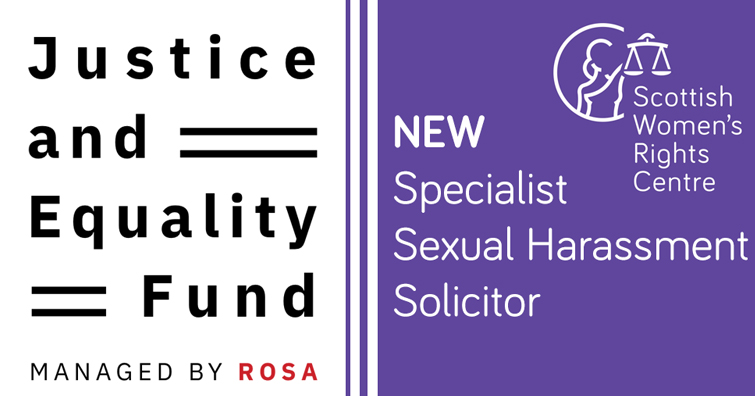 We are pleased to announce that we will be appointing a specialist solicitor for cases of sexual harassment and abuse in employment, further education or other settings, including online spaces. This post is made possible by the Justice and Equality Fund (JEF) from Rosa, a charitable fund for initiatives that support women and girls in the UK.
We are pleased to announce that we will be appointing a specialist solicitor for cases of sexual harassment and abuse in employment, further education or other settings, including online spaces. This post is made possible by the Justice and Equality Fund (JEF) from Rosa, a charitable fund for initiatives that support women and girls in the UK.
Successful Civil Damages Action for Rape: AR v Stephen Daniel Coxen - Press Release
The Scottish Women’s Rights Centre and JustRight Scotland welcome today’s judgment of Sheriff Weir QC in AR v Stephen Daniel Coxen.
Child Contact Survey Closed for Submissions
Our Child Contact survey is now closed and is no longer taking submissions. Thank you so much to all of you who shared your experiences of the child contact system - your testimonies are all highly valued and will be used to draft our response to policymakers.
Lanarkshire Legal Surgery Now Open!
Our Lanarkshire surgery is now in operation. If you need free and confidential legal support or advice, you can book an appointment with our solicitor for legal information and advice.
LEGAL GUIDE: Reporting Forced Marriage & Honour Crimes - Your Rights
Recently, more and more research has been carried out on forced marriage and honour crimes in Scotland. These crimes are a form of gender-based violence, and may include a range of different offences. Among the general public, there is still a lot of confusion as to what these crimes might look like and how to go about reporting them. What support services are in place? What are my rights if I choose to report a forced marriage or honour crime?
LEGAL GUIDE: Reporting Sexual Crimes to the Police
Over the past year, movements such as #MeToo and #Time's Up have reminded us all of the need for further resources for women who have experienced sexual crimes. At the Scottish Women’s Rights Centre, we often hear that the process of reporting sexual crimes can be challenging and confusing. What should I expect when reporting rape or other types of sexual crimes to the police in Scotland? What are my rights? In order to answer these questions, we are proud to launch our latest legal guide - Reporting Sexual Crimes: Your Rights.
Child Contact Survey
The SWRC will be responding to a consultation on the Children Scotland Act 1995. To inform our response, we invite survivors of domestic abuse who have experience of child contact proceedings, to complete this confidential and anonymous survey. To access the survey please visit.
https://www.surveymonkey.co.uk/r/2C5BX8M
Thank you.
LEGAL GUIDE: Reporting Domestic Abuse to the Police
The seismic vote that took place in Ireland this time last week is a milestone for progress and for the rights of women to live free from control. Rightly it is being celebrated, as is the work of countless activists that brought us to this point, but the fight to liberate women from abuses of power and coercion is not restricted to our bodies, and it is happening right here in Scotland, right now.
One reason we at the Scottish Women’s Rights Centre were so invested in the result of the Irish referendum is because the limitation of access to contraception and abortion is a form of gender-based violence in itself. Another is that for women who experience domestic abuse this - frequently coupled with sexual violence - is a tactic often used by perpetrators to control their partner.Stalking Awareness Week - New Resource!
As part of Stalking Awareness Week and to celebrate the launch of our new resource on Reporting Stalking we checked in for a quick Q&A with Sarah who works at a local Women’s Aid service to find out how she is getting on using FollowItApp, our innovative new mobile app that supports victim-survivors of stalking to document their experience.
Very often there’s a mismatch between people’s idea of what stalking is, and what the law in Scotland has to say. Scots Law says that the crime of stalking is a course of conduct - this means an incident that takes place two or more times - that places another person in a state of fear or alarm. That means that non-criminal acts, for example sending a text message that says ‘your hair looks nice today’, become criminal and can therefore be reported when they happen twice or more and when they cause the victim to feel afraid. The above text could easily make someone feel afraid, because this is intended to let them know that they are being watched. There are no rules about who can and can’t be a stalker; it can be a friend, acquaintance, or even a total stranger, but most of the time it is a partner or ex-partner and stalking is often experienced as part of domestic abuse.
Not just banter - sexual harassment in the workplace in Scotland [Holyrood Magazine]
Jennifer Dalziel, a solicitor with JustRight Scotland and the project solicitor for the Scottish Women’s Rights Centre – a collaboration between JustRight Scotland, Rape Crisis Scotland and Strathclyde University Law Clinic which runs helplines and surgeries on legal issues facing women – says that she has noticed an increase in the number of enquiries about sexual harassment in the two years since their helplines began in 2015.
She suspects this is due to women’s increasing awareness of their rights rather than that it’s happening more.
“Not to say that that gives them an easy route forward, but that they are more aware that it shouldn’t be happening,” she says.
So what is stalking, anyway?
As with lots crimes, when it comes to stalking there can be a mismatch between what the crime actually is, and what we think it is. Decades of sensationalised stories and soap opera plots of mysterious men lurking in the shadows have had a big influence on how we imagine stalking, and unless it’s happened to you, or to one of your loved ones, why would you know the ins and outs of actual stalking legislation?
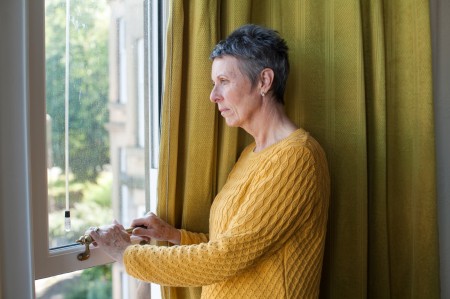
© Copyright Laura Dodsworth
Experiencing stalking? There’s an app for that.
Name a problem, and someone, somewhere, is developing a digital solution.
Technology is a double edged sword; it can be hazardous, irritating and relentless, but it can also unleash immeasurable creativity and help to provide solutions for age old problems. Importantly for us, at the Scottish Women’s Rights Centre and media co-op, technology is helping us to put power back in the hands of women who have experienced abuse, and changing the landscape for stalking victim-survivors in Scotland.
Announcement: new partnership with JustRight Scotland
The Scottish Women’s Rights Centre is delighted to announce our new partnership with JustRight Scotland, a Scottish legal provider with human rights at their core.
Going forward, we’ll be working closely with JustRight Scotland to continue to provide free legal advice, information and representation to women affected by violence or abuse.
5 things you should know about Scotland’s new law on image based abuse
In case you missed it, this July a new law came into force in Scotland on the 'non-consensual sharing of intimate images'. Basically, the sharing of private pictures without permission. This law is part of the Abusive Behaviour and Sexual Harm 2016 Act which means that anyone caught sharing or threatening to share somebody else's intimate images could be sent to prison for up to 5 years.
Here’s 5 things you need to know about Scotland’s new law:
Statement on case of Lola Ilesanmi
"We are deeply concerned to hear of Lola Ilesanmi’s story, raised by Hannah Bardell MP in Prime Ministers Questions today.
It is clear that the risk facing both Lola and her daughter is critical, with reported domestic abuse and a high risk that should they be deported, her daughter would be forced to undergo Female Genital Mutilation (FGM).
FGM is abuse, it is intolerable and the practice has life long medical and psychological consequences for those women and girls who are subject to it.
We recognise that Prime Minister Theresa May condemns the practice of FGM, however we would ask her to recognise the avoidable reality of what Lola and her daughter will be subject to if the current plans by the Home Office to deport the family to Nigeria are followed through.
The Scottish Women’s Rights Centre urge the Home Office to look at this case immediately and take all necessary measures to ensure the safety and wellbeing of Lola and her 3 year old daughter."
Consultation Response: Scotland's Domestic Abuse Bill
'The Scottish Women’s Rights Centre supports the creation of a new offence of abusive behaviour that encompasses both physical and non-physical abuse. We believe that this is a necessary and important step forward in shaping Scotland’s response to domestic abuse, and one that – if implemented and resourced effectively – could improve women’s access to justice.'
National Stalking Awareness Week
Since we launched the Scottish Women’s Rights Centre helpline, we’ve had calls from women across Scotland with experience of being stalked be it in the past or present. It is with these women in mind that we warmly welcome National Stalking Awareness Week as an opportunity to highlight the impact of stalking, the influence of technology and as s chance for us all to unite in support of victims of this serious crime.
Gender, Justice and Legal Aid in Scotland
Scottish Women’s Rights Centre comments on the Law Society’s research on The Financial Health of Legal Aid Firms in Scotland
A gap exists in Scotland between women experiencing violence or abuse, and access to justice. The Scottish Women’s Rights Centre (SWRC) is a unique collaborative project that exists because of – and works to try and bridge – this gap, working with and supporting women to achieve justice through legal advice, representation and advocacy. We are funded by the Scottish Government and the Scottish Legal Aid Board.
The SWRC recognises that legal aid is a critical piece in the complex jigsaw puzzle that makes up justice in Scotland. The diagnosis from the most recent health check of legal aid by the Law Society is of pressing concern.
Scotland's new Domestic Abuse Bill is published
The Scottish Women’s Rights Centre welcomes the launch of Scotland’s new
Domestic Abuse Bill.
At the moment, there is a significant gap between criminal justice responses to
and the evidence and experience of women who are subject to domestic abuse.
Without legislation that encompasses and criminalises the broad range of
abusive tactics perpetrators use against victims, including psychological,
emotional, financial, sexual and physical abuse, women are too often left
vulnerable, unsupported by the legal framework and unable to access justice.
'I just froze'
Rape Crisis Scotland yesterday (7th March) launched a powerful and creative campaign set to challenge and change common misconceptions that there is a right or wrong way for people to react during or after a rape.
The campaign launches just ahead of the introduction of judicial directions in sexual offence cases on the issue of lack of physical resistance and delayed reporting to the police.
The new directions mean that from April under the Abusive Behaviour and Sexual Harm Bill judges in Scotland will be required to tell jurors where relevant that many people do not physically resist when subject to a violent or sexual assault, instead they might freeze. Additionally, where relevant judges will tell jurors that there can be good reason why a person may not report rape immediately.
These directions are a significant and necessary step forward in challenging and changing the myths which can prevent women from having the confidence to report rape or sexual abuse.
The Scottish Women’s Rights Centre welcomes both the new judicial directions and the creativity of Rape Crisis Scotland in campaigning for improved responses to victim-survivors of rape across Scotland.
Legal Aid review announced
"The Scottish Women's Rights Centre welcome news of an independent review into legal aid in Scotland, and in particular the recognition of legal aid as vital in helping to achieve access to justice.
The importance of legal aid cannot be understated, and we look forward to engaging with the review to promote justice for women."
Read the Minister's full statement announcing the review here.
Scotland's first civil action case for damages for rape
Rape Crisis Scotland hails landmark ruling in Scotland's first civil action case for damages for rape stating "this is a landmark case that broadens access to justice in Scotland".
Rape Crisis Scotland reaction to the Ched Evans acquittal
We were shocked and horrified to see the use of such blatantly prejudicial sexual history evidence in the Ched Evans retrial.
By Sandy Brindley and Michele Burman
To access the full blog post please follow the link below.
Significant Funding announcement for SWRC
Justice Secretary Michael Matheson, today announced significant funding for the development and extension of the SWRC over the next 2 years.
The SWRC is delighted to have received additional support from the Scottish Government to enable the employment of more staff and the establishment of new bases in Dundee and the Highlands.
The additional funding will significantly enhance services available to women survivors of gender based violence through the establishment of legal surgeries across the central belt, in Dundee and the Highlands. The new surgeries will be offered in addition to the current legal surgeries based in Glasgow and Lanarkshire.
The SWRC Helpline, available across Scotland, will also develop enhanced access through the provision of an 3rd weekly session in 2016 and a further 4th weekly helpline session in 2017.
The Case for Women's Rights
The Scottish Women's Rights Centre (SWRC) hosts its first year anniversary seminar and drinks reception on 21 June 2016. Reflecting on the lessons learned and discussing key issues in relation to unmet legal need for women survivors of gender based violence.
Speakers include:
Jennifer Dalziel SWRC solicitor
Dr Marsha Scott Scottish Women's Aid
Sandy Brindley Rape Crisis Scotland
James Wolffe Faculty of Advocates
Scottish Legal Aid Board
For more information or to register for this event follow this link to Eventbrite.
A Woman's Story: A Survivor Speaks Out
Edinburgh Rape Crisis Centre has worked together with a woman who has used their services on A Woman’s Story. The woman, who wishes to remain anonymous, has taken the difficult decision to share her personal story with the public in the sincere hope that it can contribute to making a difference to the experiences of other individuals affected by sexual violence.
A Woman’s Story describes the trauma of rape, and her experience of police, health, justice and other services. It focuses on the institutional and individual responses from services and professionals which the woman experienced as supportive and compassionate, and which aided her recovery, and those which she experienced as less supportive and at worst re-traumatising.
Whilst improvements have been made in relation to the investigation and prosecution of sexual crimes, and support and care for victims of these crimes, what A Woman’s Story tells us – clearly and urgently – is that much more needs to be done. For more information see the Rape Crisis Scotland website.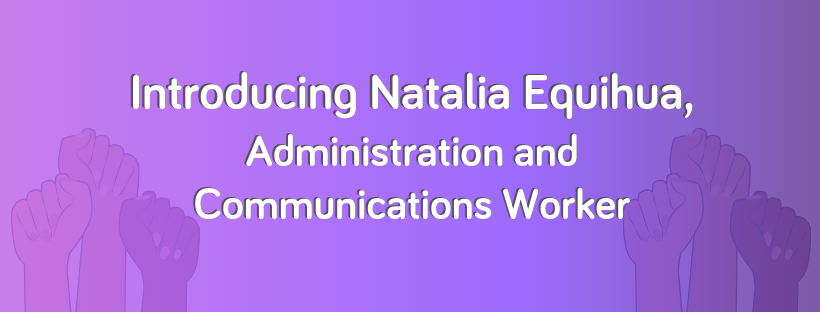
.png)